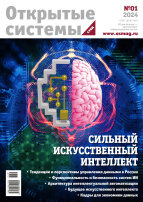COVER FEATURES
NEW TASKS OF THE DIGITAL PLATFORM
The Supercloud: Applying Internet Design Principles to Interconnecting Clouds
Just like we have small dedicated networks in houses, cars, factories, etc., we will have small clouds in all these places. We need a way to glue all these clouds together into a single worldwide infrastructure. The Cloud Abstraction Layer could provide such glue.
Robbert van Renesse (rvr@cs.cornell.edu), research professor, Hakim Weatherspoon (hweather@cs.cornell.edu), professor; Zhiming Shen (zshen@cs.cornell.edu), postdoctoral researcher, Weijia Song (wsong@cornell.edu), research associate, Cornell University.
Paradoxes of Internet Architecture
The architectural elements of the Internet that led to its great success are now, paradoxically, the source of its severest problems. The article examines key design elements of Internet architecture and shows how they have contributed to its success and how they now constrain it.
Srinivasan Keshav (keshav@uwaterloo.ca), professor, University of Waterloo
Intelligent Technologies instead of Humans: Evaluating the Match
A successful move to digital economy, which requires rapid processing of vast data amounts, is impossible without automating cognitive tasks that involve routine actions. While applied artificial intelligence technologies can be used for the purpose, any replacement of a human with an automated system prompts the question of how to establish trust in the results produced by AI tools.
Sergei Garbuk (Garbuk@fpi.gov.ru), deputy CEO, Russian Foundation for Advanced Research Projects in the Defense Industry (Moscow).
Making Sense of Agile Methods
The author, who is the creator of the object-oriented Eiffel programming language, runs agile methods and practices through his personal friend-or-foe test. Find out about his experiences and opinions on the hype, ugly, good, and brilliant aspects of agile.
Bertrand Meyer (bertrand.meyer@inf.ethz.ch), professor of software engineering, Politecnico di Milano and Innopolis University.
PLATFORMS
In-Memory Computing
Neither Internet of Things nor FinTech is possible without the capability to process data in near real time, which can be enabled today by way of storing and processing data in memory. An intelligent distributed in-memory platform could be built based on the Apache Ignite open source project.
Alexander Ryndin (ra@arenadata.io), Arenadata software engineer, IBS (Moscow).
BLOCKCHAIN
Industrial Blockchain in Oil&Gas Sector
Despite the fact that oil and gas production industries are among the least responsive to innovation, new technologies still make way in the two. One example is an industrial-grade blockchain that is currently being used for remote G&G data monitoring.
Sergey Kosenkov (kosenkov@nposngs.ru), IT project manager, Andrei Shaibakov (shaybakov@nposngs.ru), project manager, Yuri Chetyrin (chetyrin@nposngs.ru), lead programmer, Soyuzneftegazservis (Moscow).
INTEGRATION
A Universal Platform for In-Memory Processing
As various aspects of public life are being digitally transformed, the amount of data that must be processed in real time is constantly growing. Soon, that real-time processing from a premium feature will turn into a must for any business to survive, necessitating the use of tools to support that, such as Apache Ignite.
Nikita Ivanov (nivanov@gridgain.com), founder and CTO, GridGain.
MACHINE LEARNING
Student engagement monitoring
Using video feeds from cameras installed in classrooms, a cloud service developed by the Financial University measures the level of individual and group engagement of students, aggregating the detected trends by faculties, years, groups, etc., and displaying the data on interactive dashboards.
Vladimir Soloviev (vsoloviev@fa.ru), professor and chair, Department of Data Analysis, Decision Making, Financial Technology, Daria Kuklina (daria.kuklina@outlook.com), postgraduate student, Artyom Slavgorodskiy (a.a.slavgorodskiy@gmail.com), postgraduate student, Faculty of Applied Mathematics and Information Technology, Financial University under the Government of the Russian Federation (Moscow); Ilya Pukhov (i.pukhov@zerobit.ru), data scientist, Mikhail Titko (m.titko@zerobit.ru), software architect, Zerobit LLC (Moscow).
DBMS
Towards Autonomous Databases
While present-day databases operated by highly-qualified administrators offer a wealth of management, scalability, and security tools, the growth of workload complexity coupled with the requirement to respond to changes in real-time create the need for autonomous database systems that reduce the impact of human factor and can ensure seamless operation of an optimum configuration.
Mark Rivkin (mark.rivkin@oracle.com), director of technology consulting, Oracle CIS (Moscow).
DataOps: Agile-style data
Following the widespread introduction of the DevOps practices, it was also the turn of Agile methods to work with large data - DataOps.
Dmitry Volkov (vlk@keldysh.ru), fellow, Keldysh Institute of Applied Mathematics, Andrey Nikolayenko (anikolaenko@ibs.ru), architect, IBS, (Moscow).
OPINION
A Cambrian Explosion of DevOps Tools
Any discussion on how to scale the benefits of DevOps invariably lands on tools. The planning, tracking, automation, and management tools we use define the “ground truth” of where and how work happens. One of the most interesting, and at times challenging, aspects of agile and DevOps transformations is the sheer volume of tools involved.
Mik Kersten (mik@tasktop.com), founder and CEO, Tasktop.
OS ACADEMY
Predicting Government Procurement Risks with Machine Learning
Every year, trillions of rubles worth of goods and services are purchased using the Government Procurement System. A way to ensure efficient control in the area is through automated risk assessment of government contracts using machine learning techniques.
Dmitry Eliseev (daeliseev@edu.hse.ru), student, Dmitry Romanov (dromanov@hse.ru), assistant professor, Business Informatics School, Business and Management Department, Higher School of Economics - National Research University (Moscow).
On Deep Learning - In Depth
The realm of data science and artificial intelligence is vast and indistinct because machine learning has made its way into virtually all domains. The book under the review is aimed to make machine learning comprehensible to the broadest audience possible.
Dmitry Volkov (vlk@keldysh.ru), fellow, Keldysh Institute of Applied Mathematics (Moscow).
Getting Healthier with Digital Help Amid Growing Cybersecurity Concerns
The April and March issues of the Computer magazine (IEEE Computer Society, V. 51, No. 3, 4 2018) focus on e-coaching as well as on security and protection issues in the modern digital world.
Alexander Tyrenko (shoorah@osp.ru), reviewer, Computerworld Russia (Moscow).
_300.jpg)
